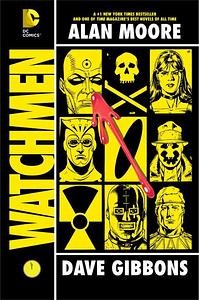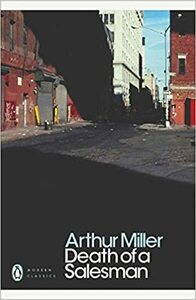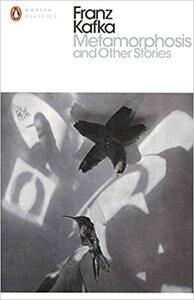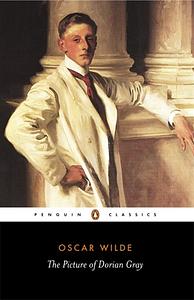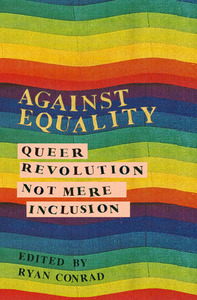Take a photo of a barcode or cover
mars2k's Reviews (234)
Graphic: Racial slurs
Moderate: Child abuse, Confinement, Cursing, Drug use, Infidelity, Panic attacks/disorders, Physical abuse, Racism, Sexual content, Torture, Violence, Police brutality, Kidnapping
Minor: Ableism, Addiction, Cancer, Death, Gun violence, Hate crime, Rape, Blood, Dementia, Death of parent, Murder, Schizophrenia/Psychosis , Pregnancy, Fire/Fire injury, Alcohol
Graphic: Cursing
Moderate: Death, Drug use, Panic attacks/disorders, Blood, Excrement, Death of parent
Minor: Animal death, Body horror, Bullying, Chronic illness, Fatphobia, Mental illness, Sexual content, Suicide, Vomit, Medical content, Grief, War
Graphic: Animal death, Cancer, Child abuse, Cursing, Death, Gun violence, Racial slurs, Violence, Blood, Murder, Fire/Fire injury, War
Moderate: Ableism, Adult/minor relationship, Body horror, Bullying, Child death, Domestic abuse, Drug use, Gore, Homophobia, Infertility, Infidelity, Misogyny, Racism, Rape, Sexual assault, Terminal illness, Toxic relationship, Forced institutionalization, Xenophobia, Police brutality, Antisemitism, Kidnapping, Stalking, Lesbophobia, Injury/Injury detail, Classism
Minor: Addiction, Alcoholism, Confinement, Fatphobia, Pedophilia, Suicide, Excrement, Vomit, Car accident, Abortion, Death of parent, Pregnancy, Outing, Cultural appropriation, Abandonment, Alcohol
Perhaps if I’d seen Death of a Salesman performed instead of reading the script I’d have had a more profound experience. As it stands, I can give a noncommittal shrug and confess it said what Miller wanted it to say but it didn’t speak to me.
Moderate: Ableism, Bullying, Child abuse, Death, Emotional abuse, Infidelity, Misogyny, Sexism, Suicide, Toxic relationship, Violence, Dementia, Grief, Car accident, Death of parent, Schizophrenia/Psychosis
Minor: Cursing, Domestic abuse, Fatphobia, Sexual content, Vomit, Suicide attempt, Fire/Fire injury, War
Graphic: Animal cruelty, Confinement, Death, Torture, Toxic relationship, Xenophobia, Blood, Abandonment
Moderate: Adult/minor relationship, Animal death, Child abuse, Eating disorder, Emotional abuse, Gun violence, Physical abuse, Self harm, Sexual assault, Violence, Islamophobia, Grief, Death of parent, Murder, Injury/Injury detail
Minor: Ableism, Body horror, Incest, Misogyny, Panic attacks/disorders, Racism, Sexual content, Suicidal thoughts, Suicide, Excrement, Vomit, Dementia, Pregnancy, Cultural appropriation, Alcohol, Colonisation, War, Classism
All in all, a fairly middling assortment. Worthwhile if you’re interested in the history of science fiction, I suppose.
Graphic: Ableism, Alcoholism, Animal cruelty, Animal death, Body horror, Bullying, Death, Genocide, Gore, Gun violence, Mental illness, Physical abuse, Racial slurs, Racism, Slavery, Violence, Blood, Medical content, Grief, Mass/school shootings, Medical trauma, Car accident, Murder, Schizophrenia/Psychosis , Fire/Fire injury, Alcohol, Colonisation, War
Moderate: Child abuse, Confinement, Emotional abuse, Misogyny, Self harm, Suicidal thoughts, Suicide, Terminal illness, Torture, Xenophobia, Police brutality, Antisemitism, Cannibalism, Stalking, Suicide attempt, Injury/Injury detail, Classism
Minor: Child death, Sexism, Sexual content, Islamophobia, Death of parent, Lesbophobia
I wouldn’t recommend Too Big to Walk
Moderate: Animal death, Child death, Death, Sexism, Sexual content, Blood, Fire/Fire injury, Colonisation, War
Minor: Ableism, Addiction, Alcoholism, Bullying, Cancer, Chronic illness, Cursing, Drug use, Genocide, Gore, Gun violence, Misogyny, Slavery, Suicide, Terminal illness, Xenophobia, Excrement, Grief, Cannibalism, Death of parent, Alcohol
Minor: Death, Racism, Xenophobia, Vomit, Death of parent
The Picture of Dorian Gray is good. I wasn’t blown away by it, but the premise is solid and I was pleasantly surprised by how audaciously queer it is. I can see why it’s considered a classic. Definitely worth a read.
Graphic: Death, Misogyny, Toxic relationship, Blood, Murder, Toxic friendship, Classism
Moderate: Addiction, Animal death, Body horror, Bullying, Drug use, Emotional abuse, Gun violence, Infidelity, Mental illness, Panic attacks/disorders, Racial slurs, Sexism, Suicide, Antisemitism, Grief, Alcohol
Minor: Animal cruelty, Body shaming, Fatphobia, Homophobia, Racism, Sexual content, Slavery, Suicidal thoughts, Torture, Violence, Xenophobia, Cultural appropriation, Colonisation
I’d definitely recommend Against Equality to anyone who considers themself progressive. It isn’t perfect, but it’s worth a read.
Graphic: Child abuse, Child death, Death, Gun violence, Hate crime, Homophobia, Pedophilia, Racism, Rape, Sexual assault, Sexual violence, Torture, Transphobia, Violence, Xenophobia, Police brutality, Murder, Lesbophobia, Sexual harassment, War
Moderate: Bullying, Confinement, Cursing, Domestic abuse, Misogyny, Sexism, Sexual content, Suicide, Terminal illness, Blood, Antisemitism, Islamophobia, Grief, Stalking, Outing, Cultural appropriation, Colonisation, Classism
Minor: Addiction, Cancer, Deadnaming, Drug use, Eating disorder, Fatphobia, Genocide, Gore, Incest, Racial slurs, Slavery, Excrement, Vomit, Medical content, Trafficking, Kidnapping, Abortion, Death of parent, Pregnancy


